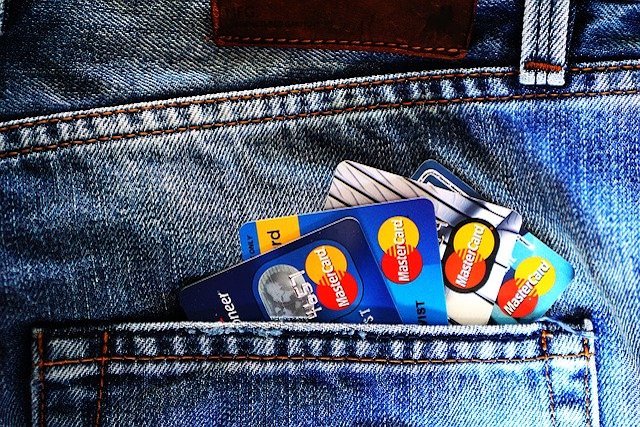Whether you are just setting up a company, or your firm is in financial stress, it is essential to understand if a business debt can affect personal credit. While personal finances are usually kept separate from those of a legal entity such as a limited company, there may be circumstances where this is not the case.
Understanding when and how your personal finances can be affected is crucial, as you could stand to lose your own assets if your firm is unable to satisfy its debts. Like most situations involving financial distress, it is also important to seek out independent and specialist advice at your earliest opportunity, before things have a chance to spiral out of control.
What Qualifies as Business Debt?
Before we look into whether business debt can affect personal credit, we will first of all define what this actually means. The most common types involve:
- Business loans
- Mortgages (such as for office premises)
- Credit cards
- Stock
- Plant and equipment leases
Your company can fall into debt by not keeping up with the above obligations, as well as a number of other circumstances. These can range from low sales and high overheads, to growing too quickly or the loss of a large contract or client.
If you have noticed that you are starting to struggle to meet your obligations, swift action is necessary. As well as seeking specialist advice, other options include managing your profit and loss statements, and business cash flow. You can also request an independent review of your firm’s finances and obtain essential advice on how to turn things around.
Can Business Debt Affect Personal Credit?
Whether your business debt can affect your personal credit rating depends on a number of different factors. These include:
Business Structure
There are several ways to structure a business, from sole traders and partnerships to limited companies. Whichever option you choose can actually determine whether or not your personal credit score is affected by your company debt.
If you decide to go down the sole trader or partnership routes, there is no legal distinction between you and your business. This means that you would become personally liable for anything your firm is not able to cover. As a result, your creditors are able to force the sale of personal assets to recover their losses should they so desire.

The same is true for partnerships, although the consequences here could be even more severe. This is because each member of the partnership is legally responsible for the total debts of the company, not just their share. If your business partners do not have the assets or funds available to cover their portion, you could be forced to cover their share of the debt on top of your own.
Companies registered either as a corporation or a Limited Liability Partnership (LLP) do not have these problems. Because these firms are regarded as separate legal entities, you and your business are completely different in the eyes of the law – something that provides you with ‘limited liability’. This means that in the vast majority of cases, you would not be held personally liable for your firm’s debts.
That being said, there are a few circumstances where you could still be held personally liable even if you are a limited company or part of a LLP. These include:
Personal Guarantees
A personal guarantee is often required by a bank or other financial institution before they would be willing to offer you a loan. Following the financial crash, lenders have become much more reluctant to extend credit to businesses and individuals without some sort of safety net in place for them. This is exactly what a personal guarantee provides.
The downside for company directors is that a personal guarantee waives their right to limited liability. As a result, your lender would be able to take action against you personally if your company is not able to satisfy its debts.
Improper Legal Separation
Many business owners can also find themselves personally liable for their company debt because they have failed to maintain a formal legal separation between themselves and their firm. Examples of this include using a personal credit card or cheque book to pay a corporate bill, or failing to keep adequate minutes of meetings when making important business decisions.

If your creditors can successfully demonstrate that you have not properly followed the formalities of running a limited company that are required by law, you could find yourself personally liable for business debts. In more extreme cases, you could even face a hefty fine or even a prison sentence if deliberate fraud or misrepresentation can be proved.
How Business Debt Affects Personal Credit
If you find yourself with outstanding business debts that you are personally liable for, you will either want to negotiate terms with your creditors or settle your obligations in full if possible. If neither of these is an option, you will want to seek out specialist assistance as soon as possible.
This is because any debts that are not paid in full will likely be added to your personal credit history as a default. Should this happen, you will find it more difficult to qualify for personal credit such as mortgages or loans.
It is also important to note that even if you are able to pay off all of your business loans, having a lot of company debt in comparison with your personal income can have a negative effect on your credit score. You should therefore ensure you are not taking on too much debt in your quest for business growth.
Should you wish to extend your personal credit, it is likely that your lender will seek as much information as possible, including details on past business loans. As a result, it is essential that you consider the long-term impact of business debt, not just for your company’s credit rating but your personal one as well.
Why Work with Inquesta
If you are struggling with business debts, it is essential to seek expert assistance as soon as possible. This is where Inquesta can help.
We have amassed decades of experience in assisting companies in turning around their fortunes and dealing with their debt issues. Our clients are our number one priority, so you can be confident you are working with a firm that has your best interests at heart.
To find out more about what Inquesta can do for you, contact a member of our team or request a free consultation today.

